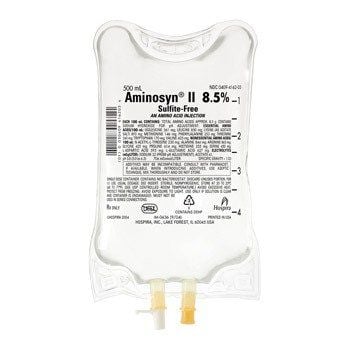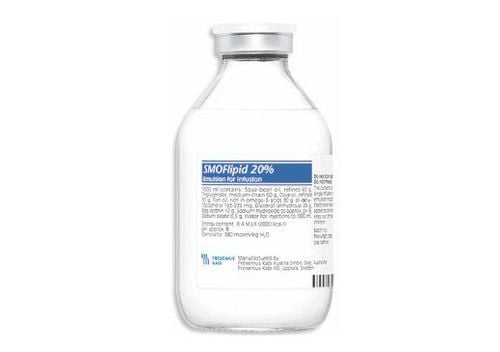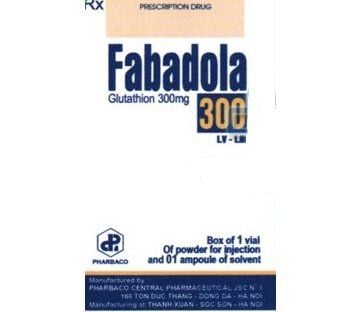This is an automatically translated article.
Protein plays a very important role in the body. If the body is not provided with this nutrient adequately, it can lead to medical conditions such as muscle weakness, reduced immunity, edema...To ensure adequate protein intake as recommended , it is necessary to determine factors such as age, gender, protein composition in each food...
1. The role of protein
Protein is the main building block of the body. They are used to build muscles, tendons, organs and skin, as well as enzymes, hormones, neurotransmitters, and various molecules that serve many important functions.Proteins are composed of smaller molecules called amino acids, which are linked together like particles on a string. These linked amino acids form long protein chains, which then fold into complex shapes.
The body produces some of these amino acids, but some essential amino acids cannot be synthesized by the body and must be obtained through the diet.
Animal protein provides all the essential amino acids in the right ratio for the body to use. This explains why animal tissue is similar to human tissue.
If you are eating products like meat, fish, eggs or dairy every day, you can get enough protein. However, if you don't eat meat, fish, eggs, dairy, or eat mostly plant-based protein, it can be more difficult to get your daily dose of protein and essential amino acids. .

Protein động vật cung cấp tất cả các axit amin thiết yếu với tỷ lệ phù hợp để cơ thể có thể sử dụng
2. Protein needs
You need protein for your muscles, bones, and the rest of your body. In order to meet protein for the body, it is necessary to provide enough protein in both quantity and quality. However, protein requirements depend on age and gender. Therefore, the need for protein content that needs to be loaded every day for each specific object is:Newborns: the amount of protein needed for each day is about 10 grams. School-age children need 19-34 grams of protein per day Teenage boys: 52 grams of protein per day. Teenage girls: 46 grams of protein per day. Adult men: about 56 grams of protein per day. Adult women: the amount of protein per day needs about 46 grams. For pregnant and lactating women, the amount of protein for each day needs 71 grams. According to the Institute of Medicine, the body should get at least 10% of daily calories but no more than 35% from protein.
3. Food sources of healthy protein
Most foods contain protein ingredients. However, the protein content of each food is different. Some foods contain more protein than others. Whether you include meat in your diet or not, you still need to choose other foods that contain protein to get enough protein from your diet.In addition to choosing protein-rich foods, you should also consider and think about the ingredients other than protein that you can get from the selected food. For example, in the process of choosing foods that are high in protein, but you need foods that are limited in saturated fat, you should choose leaner cuts of meat instead of fatty portions. Or to cut down on sodium in high-protein foods, skip processed meats like hot dogs, bacon, etc. Or if you're trying to get more omega-3s. From foods containing high protein content, you can choose salmon, tuna or eggs... These are foods that not only provide protein, but also help the body get an omega-3 boost. Or if you need more fiber from high-protein foods, choose legumes such as green beans, black beans, vegetables, almonds and other legumes.
According to researchers at the Harvard School of Public Health, to help reduce your risk of cardiovascular disease, you should limit your intake of red meat, especially processed red meat, and you should instead Eat a lot of fish, poultry and beans of all kinds. Most nutritionists agree that the best way to get protein is to choose from a variety of protein-containing food sources.
If you are watching your weight or are on a weight loss diet, then try using foods with good protein content in every meal. It will help you feel fuller longer when using other foods. What's more, eating protein evenly throughout your meals is also great for your muscles, and this becomes especially important as you age and start to show signs of muscle loss.
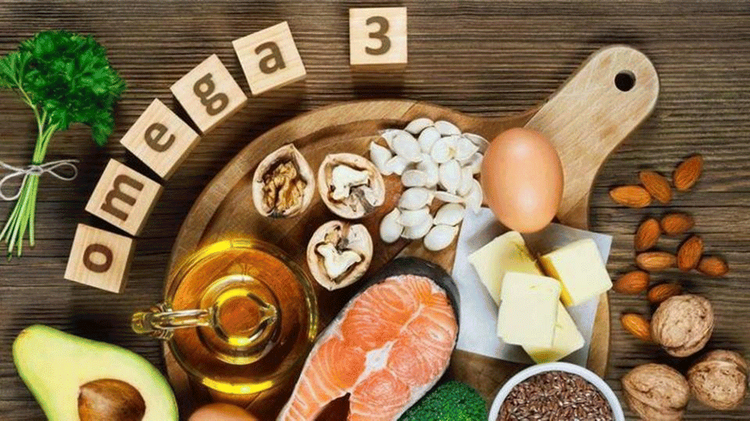
Bổ sung những loại thực phẩm có chứa hàm lượng protein cao, bạn có thể chọn cá hồi, cá ngừ hoặc trứng...
4. What are some signs that you are not getting enough protein in your daily diet?
4.1. Swelling
One of the most common signs of a protein deficiency is swelling or edema. The most common places where these symptoms appear are the abdomen, legs, feet, and hands. This can be explained as follows: proteins circulating in the body's blood, especially albumin, play a role in helping to keep fluid from accumulating in the body's tissues. A lack of protein leads to fluid accumulation in body tissues. In addition, this condition can also be caused by a number of other medical factors that cause edema, so you should see your doctor to check in case the edema becomes more serious.4.2. Mood change
Your brain uses chemicals called neurotransmitters to relay information between cells. Many of these neurotransmitters are made up of amino acids, which are the building blocks of proteins. So a lack of protein in your diet could mean your body can't make enough of those neurotransmitters, and that will change the way your brain works. For example, with low levels of dopamine and serotonin, you may feel depressed or overstimulated.4.3. Hair, nail and skin problems
Hair, nails, and skin are made up of proteins like elastin, collagen, and keratin. When your body can't make them, you can have brittle or thin hair, dry and flaky skin, and deep ridges in your nails. Of course, your diet is not the only cause of this condition, but a lack of protein in the diet is also one of the causes that needs to be considered and properly adjusted.4.4. Weak and tired
Some research shows that not eating enough protein for just one week can affect the muscles responsible for your posture and movement, especially if you're 55 or older. And over time, a lack of protein can cause you to lose muscle mass, which in turn reduces your strength, makes it difficult to balance, and slows down your metabolism. In addition, not getting enough protein for the body can also lead to anemia, when your cells don't get enough oxygen, making you tired.4.5. Feeling hungry
Protein in the diet helps provide energy for the body to function. And it's also one of three sources of calories, along with carbs and fat. If you want to eat a lot even though you already eat your usual meals, then that signals to you that you may need to add more protein in your diet. Studies have found that eating foods high in protein helps you feel fuller for longer during the day.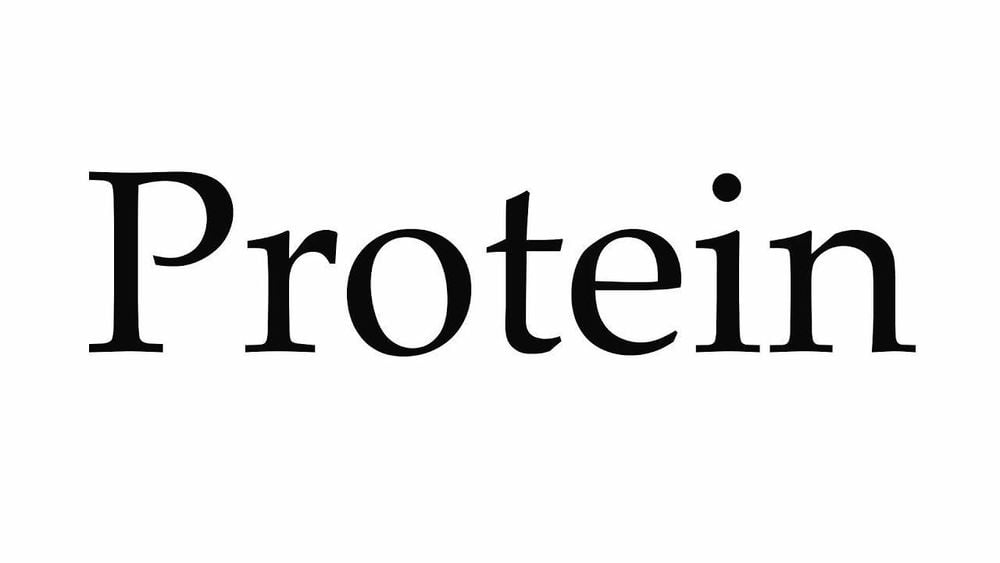
Thực phẩm có protein hàm lượng cao sẽ giúp bạn cảm thấy no lâu hơn trong ngày
4.6. Wounds are slow to heal
People who are deficient in protein often find their open wounds and scrapes take longer to heal. The same seems to be true for sprains and other risks associated with exercise. We can explain this condition may be due to a certain effect of the body that makes you not make enough collagen. Therefore, leading to a longer wound healing time. In addition, to make blood clots, you also need protein.4.7. The duration of the illness is prolonged or even persistent
Amino acids in the blood help the body's immune system make antibodies that activate white blood cells to fight viruses, bacteria, and toxins. So your body needs protein to digest and absorb other nutrients that keep you healthy. There's also evidence that protein can change the level of disease-fighting "good" bacteria in your gut.4.8. People who are prone to lack of protein in the diet
Research in the US shows that most Americans get plenty of protein. For those who don't get enough, it's often because they have a poor overall diet.Elderly people and people with cancer may have trouble eating enough protein. Furthermore, a severe undernutrition due to protein deficiency, known as kwashiorkor edema, is quite common among children living in developing countries or regions that have recently experienced a natural disaster.
Besides protein, children need to provide enough elemental zinc per day for them to eat well, reach the correct height and weight and exceed the standard. Zinc plays a role in affecting most biological processes taking place in the body, especially the breakdown of nucleic acids, proteins... Organs in the body when zinc deficiency can lead to a There are a number of diseases such as neurological disorders, irritability, etc. Therefore, parents need to learn about the role of zinc and guide them to appropriate zinc supplements for their children.
In addition to zinc, parents also need to supplement their children with other important vitamins and minerals such as lysine, chromium, B vitamins,... errands.
Please regularly visit Vinmec.com website and update useful information to take care of your baby and family.
The article is referenced at the source: webmd.com




